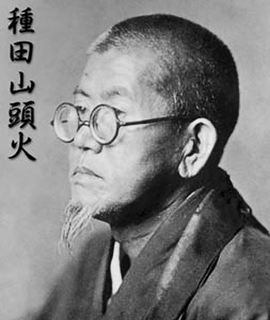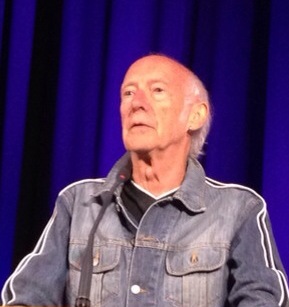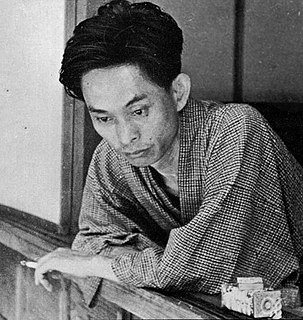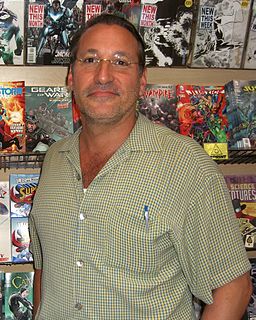A Quote by Anne Bancroft
The author of haiku should be absent, and only the haiku present.
Related Quotes
Real haiku is the soul of poetry. Anything that is not actually present in one's heart is not haiku. The moon glows, flowers bloom, insects cry, water flows. There is no place we cannot find flowers or think of the moon. This is the essence of haiku. Go beyond the restrictions of your era, forget about purpose or meaning, separate yourself from historical limitations—there you will find the essence of true art, religion, and science.
What I'm trying to do is to tell young people that I teach them how to breathe before I teach the haiku. That one breath, that one breath, because the haiku keeps you alive. It keeps you going. If you learn how to breath the haiku, you learn how to breathe. If you learn how to breathe, you're much healthier.
Regarding R. H. Blyth: The first book in English based on the saijiki is R. H. Blyth's Haiku, published in four volumes from 1949 to 1952. After the first, background volume, the remaining three consist of a collection of Japanese haiku with translations, all organized by season, and within the seasons by traditional categories and about three hundred seasonal topics.
Regarding R. H. Blyth: Blyth's four volume Haiku became especially popular at this time [1950's] because his translations were based on the assumption that the haiku was the poetic expression of Zen. Not surprisingly, his books attracted the attention of the Beat school, most notably writers such as Allen Ginsberg, Gary Snyder and Jack Kerouac, all of whom had a prior interest in Zen.

































